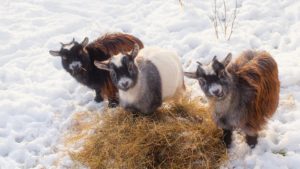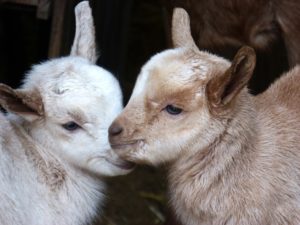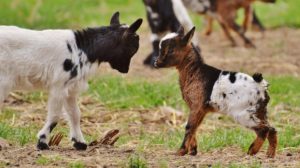The Meaning Behind the Death of Baldr and the Summer Solstice
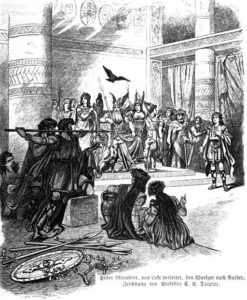 One of the most iconic stories in Norse mythology is the death of Baldr. It is probably the best known among Heathens and often recited by the anti-Lokeans as a way to justify why the Rokkatru are wrong to even consider venerating Loki and his ilk. While I’m not Rokkatru (although I suppose someone can point to me being a follower of Skadi as being a Rokkatru), I do have a deeper analysis of why the story of Baldr’s death is more than face value.
One of the most iconic stories in Norse mythology is the death of Baldr. It is probably the best known among Heathens and often recited by the anti-Lokeans as a way to justify why the Rokkatru are wrong to even consider venerating Loki and his ilk. While I’m not Rokkatru (although I suppose someone can point to me being a follower of Skadi as being a Rokkatru), I do have a deeper analysis of why the story of Baldr’s death is more than face value.
The Story of Baldr
If you know the story of Baldr’s death, you can safely skip this section. Or, you can read it and pick my version of it apart. The story goes that Baldr, the son of Odin and Frigga, was the most fair of all the gods. So much so that he was beloved by everyone. Everyone, of course, except Loki, who was mighty annoyed at so much love and reverence being passed out to Baldr.
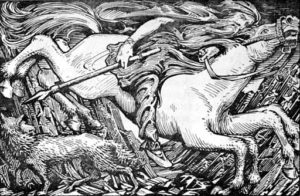 Baldr had nightmares of his death. Odin therefore went to Niflheim to consult a dead seeress to find out what was the cause of Baldr’s nightmares. The seeress told Odin that that Baldr would die by Hodr’s hand (Hodr is the brother of Baldr).
Baldr had nightmares of his death. Odin therefore went to Niflheim to consult a dead seeress to find out what was the cause of Baldr’s nightmares. The seeress told Odin that that Baldr would die by Hodr’s hand (Hodr is the brother of Baldr).
Terrified of the prophecy, Frigga made it a mission to get every rock, stone, weapon, plant, and creature in the Nine Worlds to promise to never hurt Baldr. Everything agreed to her satisfaction, so when it proved that nothing could harm him, the gods decided to make a game out of it. They threw things at Baldr and the stones and spears would turn aside and not harm him. Weapons would not cut him. So they all gathered around and laughed while throwing things at him.
The Death of Baldr
Loki despised this, and so he went to Frigga disguised as an old woman. He struck up a conversation with Frigga and asked about Baldr’s invincibility. In the course of their conversation, Frigga admitted that she hadn’t asked the lowly mistletoe to swear an oath to not harm Baldr because it was weak and too young. Loki then knew he had his weapon. He left and fashioned a dart out of the mistletoe.
When he came back to the game the gods were still playing, he noticed that Hodr, Baldr’s blind brother, 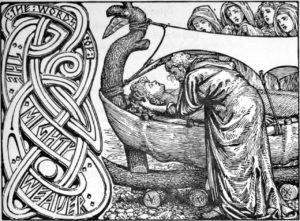 was not throwing things. Loki offered to guide Hodr’s hand so he could throw something. He put the mistletoe into Hodr’s hand. Hodr threw and the dart pierced Baldr’s heart. Baldr fell dead.
was not throwing things. Loki offered to guide Hodr’s hand so he could throw something. He put the mistletoe into Hodr’s hand. Hodr threw and the dart pierced Baldr’s heart. Baldr fell dead.
Baldr went to Hel’s domain. Odin sent his son, Hermod, to rescue Baldr from the dead. Hel told Hermod that if everything truly wept for Baldr, she would release him. Everything did, except the giantess Tokk, who was Loki is disguise. Tokk told the messengers that Hel should keep what she has. So, Baldr stays in Hel and it is the beginning of Ragnarok. Baldr survives Ragnarok and is once more alive.
What Does the Death of Baldr Mean?
We can look at the story of the death of Baldr at face value, or we can look at it as a metaphor. I prefer to look at it as a metaphor since our gods are clearly aligned with nature. Even though they have distinct personalities, they are still gods of natural phenomenon.
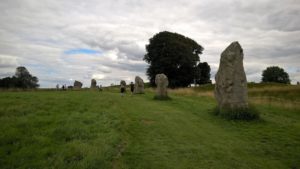 The story of Baldr is the story of the seasons and the natural cycle of life. Our northern ancestors revered the sun and its life-giving heat and warmth. We know the summer solstice was a holy time for northern pagans — especially those who built monuments to the sun during the neolithic age. Baldr is clearly associated with the midsummer sun — the sun at solstice. It is no surprise that his blind brother, Hodr (winter) slays him with the help of Loki (who is a chaos god) which brings about renewal (Ragnarok). Baldr is the renewal of life and all the beauty associated with it. Hodr is the old age and the impending death. Loki (chaos and entropy) brings these changes about.
The story of Baldr is the story of the seasons and the natural cycle of life. Our northern ancestors revered the sun and its life-giving heat and warmth. We know the summer solstice was a holy time for northern pagans — especially those who built monuments to the sun during the neolithic age. Baldr is clearly associated with the midsummer sun — the sun at solstice. It is no surprise that his blind brother, Hodr (winter) slays him with the help of Loki (who is a chaos god) which brings about renewal (Ragnarok). Baldr is the renewal of life and all the beauty associated with it. Hodr is the old age and the impending death. Loki (chaos and entropy) brings these changes about.
So, What Does this Have to do with the Upcoming Solstice?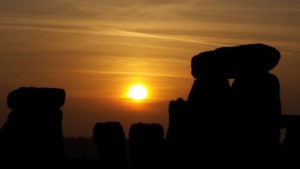
You may be wondering why I bring this up with the summer solstice just around the corner. Baldr is at his greatest power at that time, since we have the most daylight on that day. While it is officially summer by meteorological terms, it is also the beginning of the end of increasing light. Once the summer solstice has passed, the amount of daylight begins to dwindle until we reach the winter solstice, when the sunlight starts increasing again.
But the high point of the sun is the beginning of the end of the growing season, just like Baldr’s death is the beginning of Ragnarok. Sure, we have plenty of growing and maturation of plants to come, but the waning light signals the end of spring and the beginning of maturation. Maturation will culminate in the end of the growing season and the beginning of harvest. The Northern Hemisphere marches toward darkness once more.
Sunshine and Mistletoe
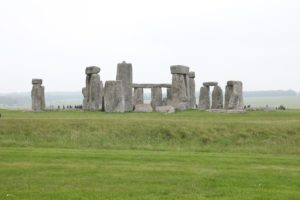 It’s little wonder why the mistletoe is a symbol of the winter solstice, since it is the symbol of Baldr’s death. But the winter solstice is also the symbol of the return of life. We know that the days will grow longer again after December 21st, just as we know the days will start to grow shorter after June 21st. So, this summer solstice, raise a horn or glass of mead to the god of rebirth and renewal. Because we know that Baldr may “die” with the oncoming winter, but he will be reborn once again. (And the Christians thought that they were the only ones with a god who dies and is reborn?)
It’s little wonder why the mistletoe is a symbol of the winter solstice, since it is the symbol of Baldr’s death. But the winter solstice is also the symbol of the return of life. We know that the days will grow longer again after December 21st, just as we know the days will start to grow shorter after June 21st. So, this summer solstice, raise a horn or glass of mead to the god of rebirth and renewal. Because we know that Baldr may “die” with the oncoming winter, but he will be reborn once again. (And the Christians thought that they were the only ones with a god who dies and is reborn?)
Let me know about your own insights into the death of Baldr and how you plan to celebrate the summer solstice.
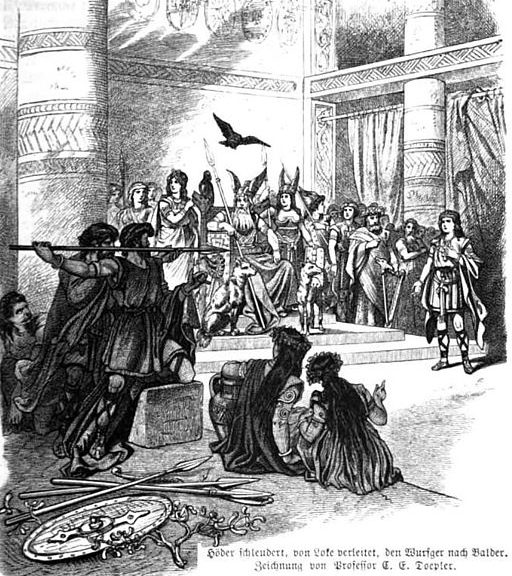
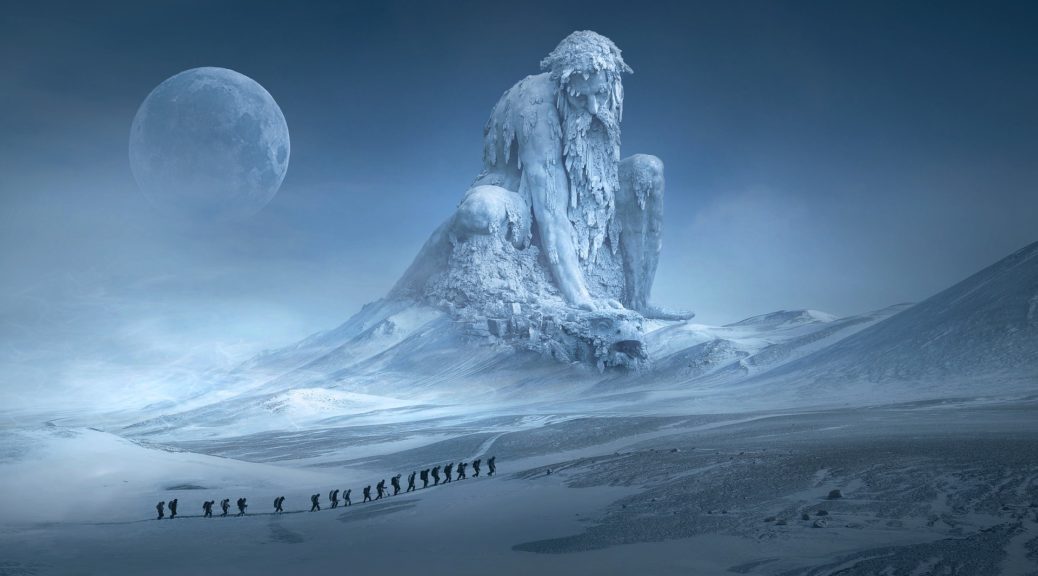
 Apparently my piece on Unverified Personal Gnosis struck a chord with many of my readers. So, I think we need to talk about recognizing what an Unverified Personal Gnosis actually looks like. Mind you, this these are not hard-and-fast rules, but they are ones I use when discerning whether this is UPG or someone’s overactive imagination…
Apparently my piece on Unverified Personal Gnosis struck a chord with many of my readers. So, I think we need to talk about recognizing what an Unverified Personal Gnosis actually looks like. Mind you, this these are not hard-and-fast rules, but they are ones I use when discerning whether this is UPG or someone’s overactive imagination…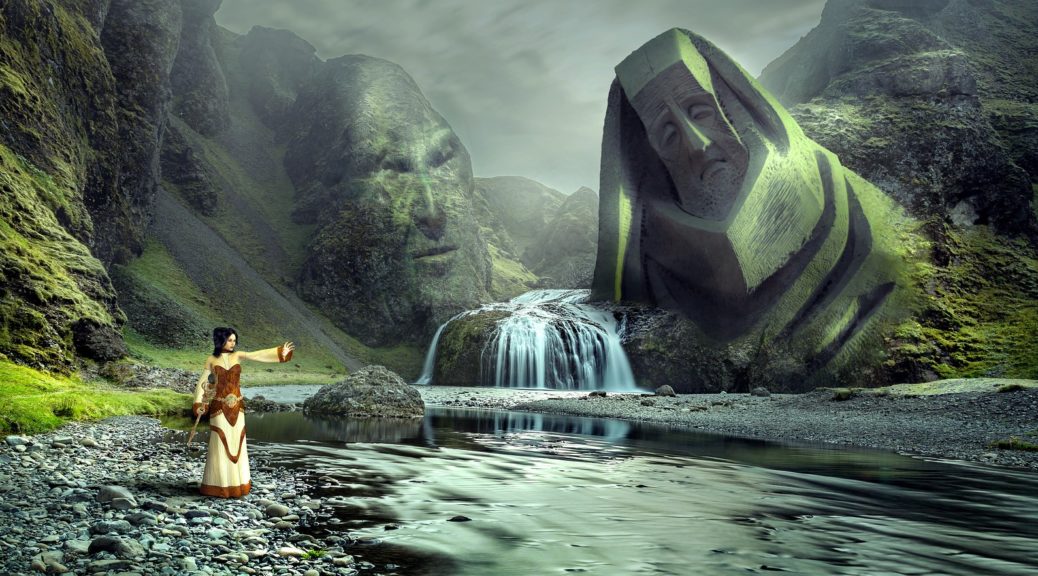
 If you’ve been a Heathen for any amount of time, you’ve heard of UPG or
If you’ve been a Heathen for any amount of time, you’ve heard of UPG or 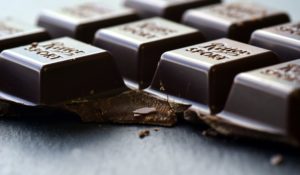 s over Unverified Personal Gnosis because it is something that isn’t easily provable. It’s personal, meaning that only one person has had that revelation. We can’t go back and quantify that the gods really did speak to that person. To use logic, it’s very hard to prove a negative.
s over Unverified Personal Gnosis because it is something that isn’t easily provable. It’s personal, meaning that only one person has had that revelation. We can’t go back and quantify that the gods really did speak to that person. To use logic, it’s very hard to prove a negative.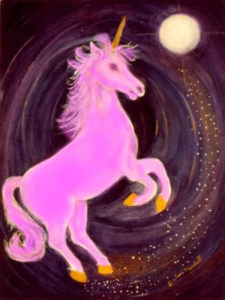
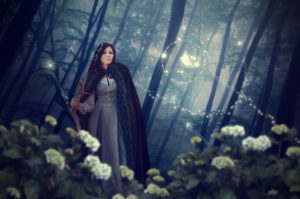 (Oh shit, someone knew I was going to drag them into this.)
(Oh shit, someone knew I was going to drag them into this.)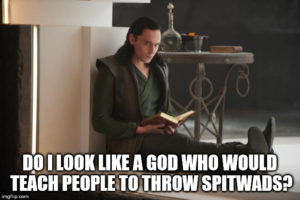 UPGs had to be the way our ancestors learned about the gods. Think about it. There wasn’t a giant classroom with a bunch of Heathens sitting around throwing spitwads at each other while Odin tried to teach them cosmology. (Or was it Tyr?) I can just imagine Loki teaching everyone how to misbehave while Thor comes in to maintain order. Yeah, warped mind. Deal with it.
UPGs had to be the way our ancestors learned about the gods. Think about it. There wasn’t a giant classroom with a bunch of Heathens sitting around throwing spitwads at each other while Odin tried to teach them cosmology. (Or was it Tyr?) I can just imagine Loki teaching everyone how to misbehave while Thor comes in to maintain order. Yeah, warped mind. Deal with it.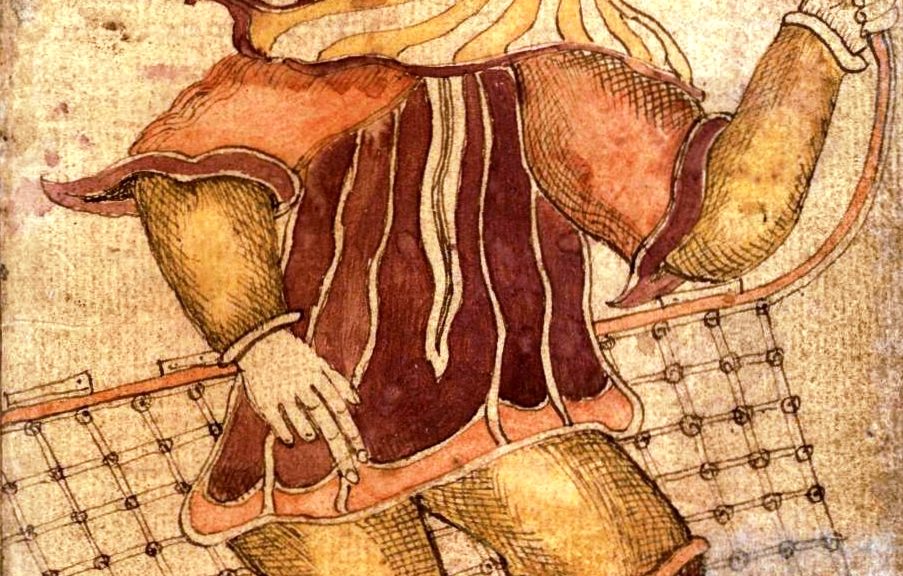
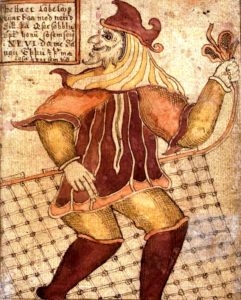 Loki is a bit of an enigma when it comes to the Northern pantheon. No god causes such turmoil among Heathens when it comes to our gods. Did Loki really exist in the pantheon? Was he worshiped? Was he a creation of Snorri? It’s almost as if the trickster intentionally caused this entire debate–which would suit him just fine.
Loki is a bit of an enigma when it comes to the Northern pantheon. No god causes such turmoil among Heathens when it comes to our gods. Did Loki really exist in the pantheon? Was he worshiped? Was he a creation of Snorri? It’s almost as if the trickster intentionally caused this entire debate–which would suit him just fine. 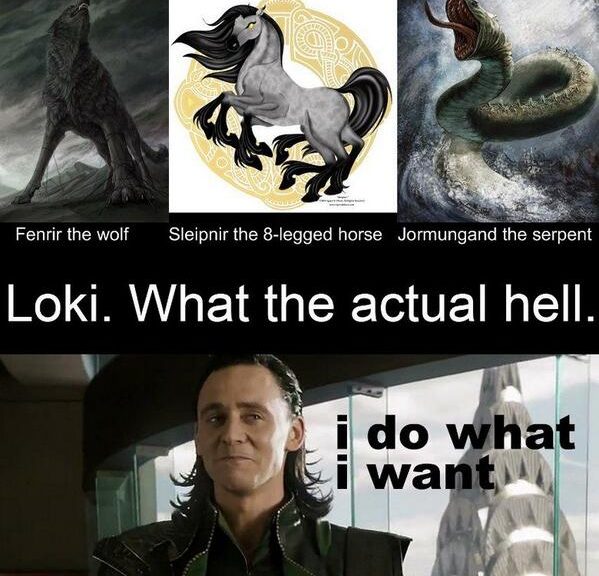
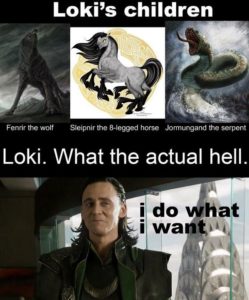 As a follower of Tyr, I have a grudging respect for Loki. So much so that I even have a place for him on my altar. Loki as a chaos god shows up constantly in my life — and probably your life, too. And despite all the naysayers claiming that no one ever worshiped Loki, I suspect ancient Heathens did acknowledge him at blots and other religious functions. And I believe that people did worship him as much as other gods. Let me explain why.
As a follower of Tyr, I have a grudging respect for Loki. So much so that I even have a place for him on my altar. Loki as a chaos god shows up constantly in my life — and probably your life, too. And despite all the naysayers claiming that no one ever worshiped Loki, I suspect ancient Heathens did acknowledge him at blots and other religious functions. And I believe that people did worship him as much as other gods. Let me explain why.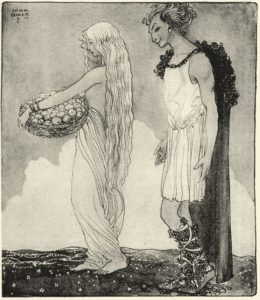
 Loki shows his malicious side both in the death of Baldr and in Lokasenna (Loki’s Flyting). It’s interesting that he isn’t bound because he caused Baldr’s death, but because he insulted the gods and goddesses at a feast. As an aside, does anyone else see a disparity here? Sure, he kills Aegir’s servant, but that’s not why his children are killed and he’s tied up with a venomous snake dripping poison overhead. Granted, the punishment may be for all his troublemaking and this might be the last straw, but seriously?
Loki shows his malicious side both in the death of Baldr and in Lokasenna (Loki’s Flyting). It’s interesting that he isn’t bound because he caused Baldr’s death, but because he insulted the gods and goddesses at a feast. As an aside, does anyone else see a disparity here? Sure, he kills Aegir’s servant, but that’s not why his children are killed and he’s tied up with a venomous snake dripping poison overhead. Granted, the punishment may be for all his troublemaking and this might be the last straw, but seriously? At this stage, you may be wondering if Loki is good or bad. If you take the simplistic route, you look at everything bad Loki has done. Loki killed Baldr through Hodur. He disallowed Baldr to return to Asgard. He sired three creatures which will bring about Ragnarok. Loki then killed Aegir’s servant and insulted the gods. The list goes on and on.
At this stage, you may be wondering if Loki is good or bad. If you take the simplistic route, you look at everything bad Loki has done. Loki killed Baldr through Hodur. He disallowed Baldr to return to Asgard. He sired three creatures which will bring about Ragnarok. Loki then killed Aegir’s servant and insulted the gods. The list goes on and on.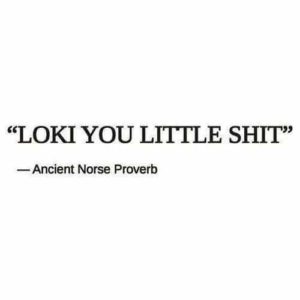 Oddly enough, I’ve discovered that if you stay on good terms with Loki, he will aid you whenever he can. But his aid is often fraught with chaos, and your life will take a turn toward the surreal should you decide to make him your primary god. It has been my and others’ experience that Loki will help you when he can, but chaos will linger with you as a type of payment. For every good thing, you may have a bad thing happen. In most cases, Loki will help you, but don’t be surprised is there is a catch. (With most of the Northern gods, there is always a catch somewhere.)
Oddly enough, I’ve discovered that if you stay on good terms with Loki, he will aid you whenever he can. But his aid is often fraught with chaos, and your life will take a turn toward the surreal should you decide to make him your primary god. It has been my and others’ experience that Loki will help you when he can, but chaos will linger with you as a type of payment. For every good thing, you may have a bad thing happen. In most cases, Loki will help you, but don’t be surprised is there is a catch. (With most of the Northern gods, there is always a catch somewhere.)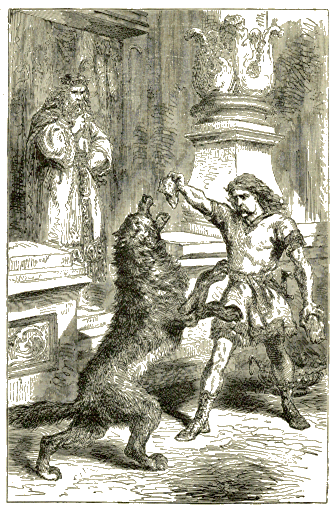
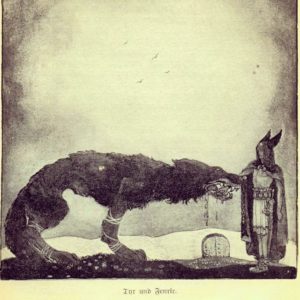 Why Loki is a Powerful God
Why Loki is a Powerful God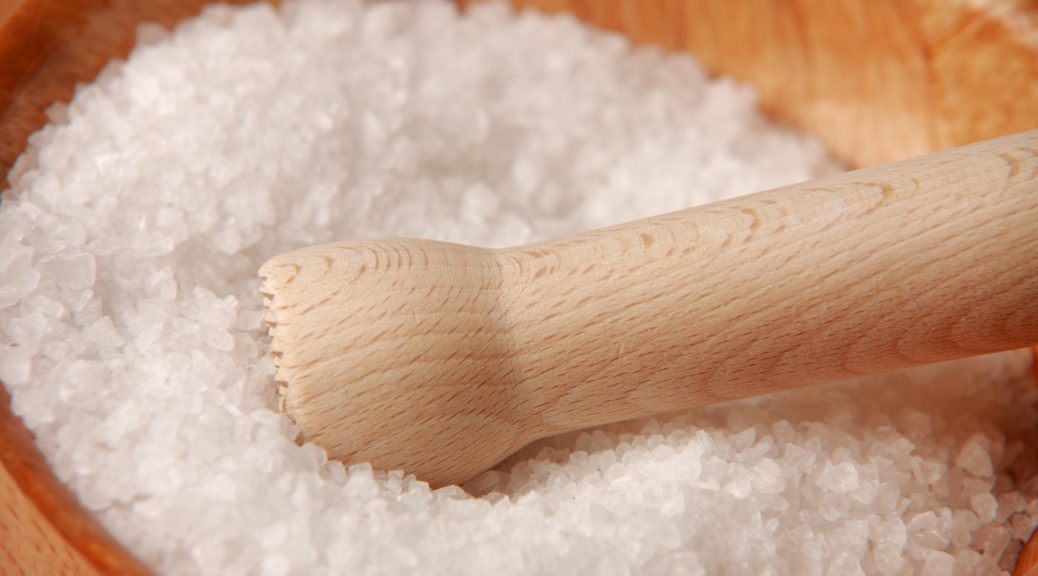
 “I think I might have problems with wights,” I told one wight expert about issues at my barn. Never mind that I’m strongly agnostic about wights, and never mind that I don’t believe in magic. I was at wit’s end when it came to my goats getting sick and dying. I had one necropsy performed on a dead kid which proved nothing except that I had a very healthy, dead kid. The expert recommended that I perform a salt purification ritual to rid the barn of negative influences.
“I think I might have problems with wights,” I told one wight expert about issues at my barn. Never mind that I’m strongly agnostic about wights, and never mind that I don’t believe in magic. I was at wit’s end when it came to my goats getting sick and dying. I had one necropsy performed on a dead kid which proved nothing except that I had a very healthy, dead kid. The expert recommended that I perform a salt purification ritual to rid the barn of negative influences.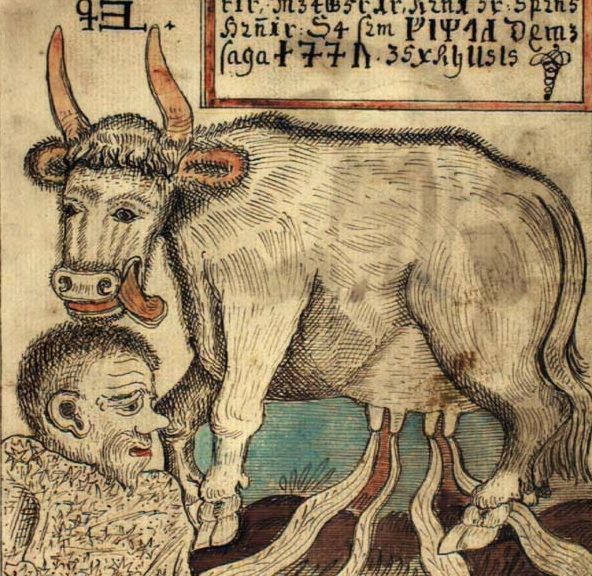
 Why Salt was so Important
Why Salt was so Important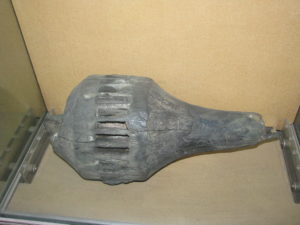
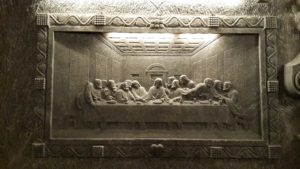
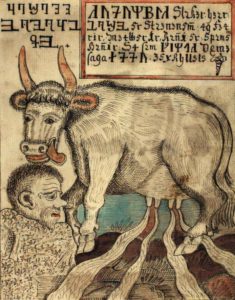
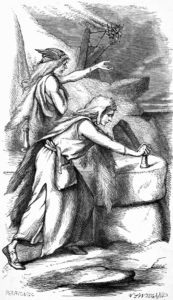
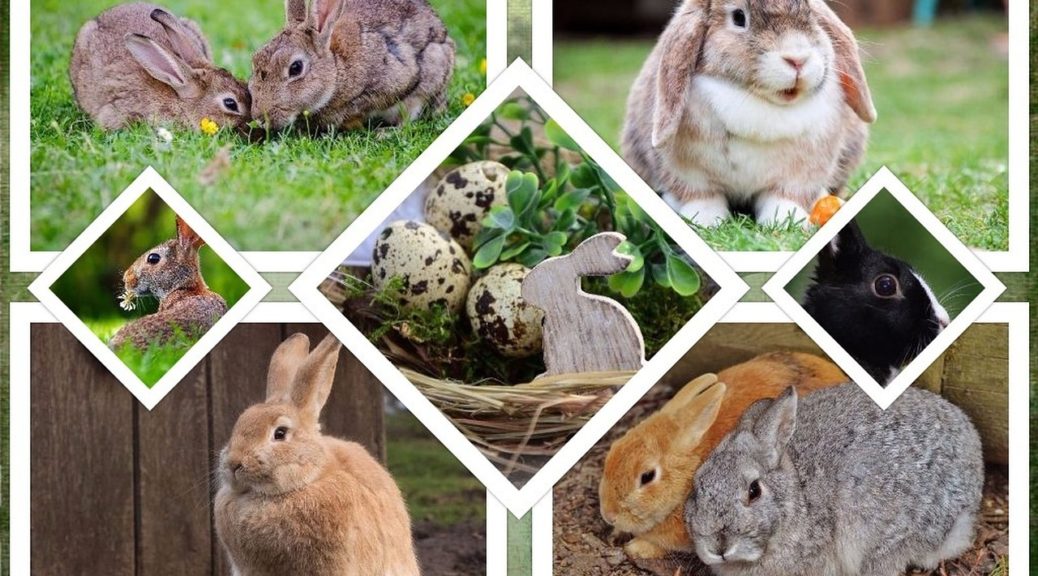
 Easter has never been my favorite time, largely because it’s a Christian holiday that is pretty much a celebration of their death-cult god. Even when I was growing up, other than getting Easter baskets with lots of yummy chocolate, all I remember is having to get dressed up and go to church and afterwards a brunch that was maybe okay. (Never mind the fact that ham was the main dish, ahem…in honor of Freyr.)
Easter has never been my favorite time, largely because it’s a Christian holiday that is pretty much a celebration of their death-cult god. Even when I was growing up, other than getting Easter baskets with lots of yummy chocolate, all I remember is having to get dressed up and go to church and afterwards a brunch that was maybe okay. (Never mind the fact that ham was the main dish, ahem…in honor of Freyr.)
 Go Have Fun While the Christians are in Church
Go Have Fun While the Christians are in Church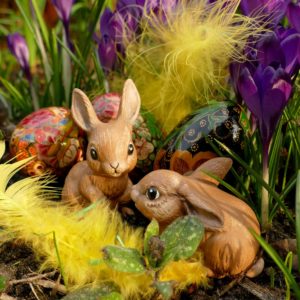
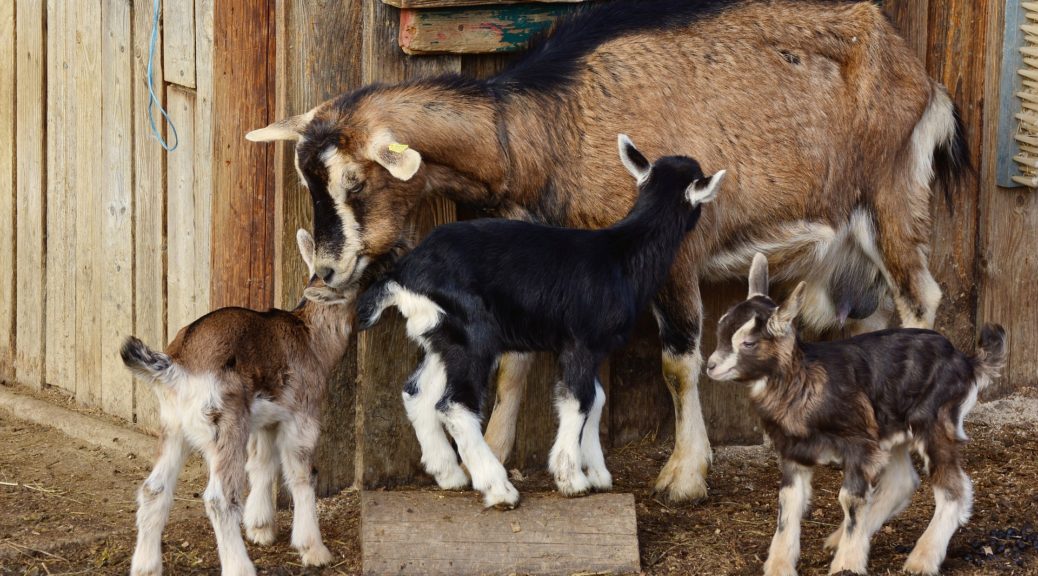
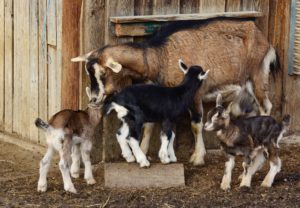 After another exhausting day of handling baby goats, I’ve decided that any Heathen who gets goats isn’t right in the head (including myself). For this reason, I submit the Five Reasons Why Heathens Should Not Own Goats. Ready? Let’s begin… [
After another exhausting day of handling baby goats, I’ve decided that any Heathen who gets goats isn’t right in the head (including myself). For this reason, I submit the Five Reasons Why Heathens Should Not Own Goats. Ready? Let’s begin… [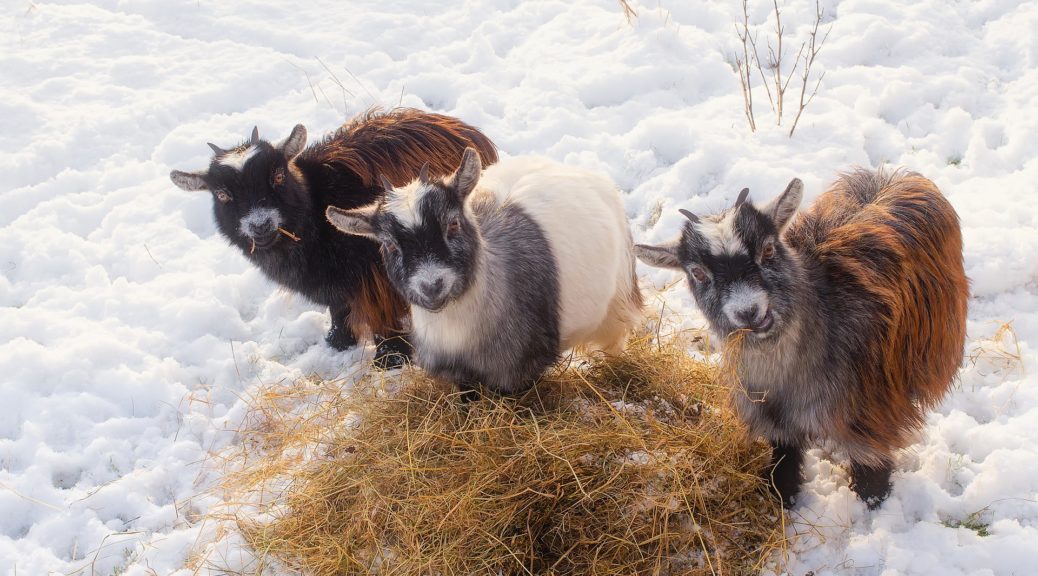

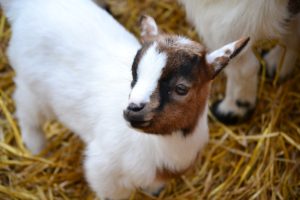 It’s Not Easy
It’s Not Easy